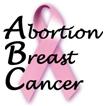NCI Researcher Admits Abortion Raises Breast Cancer Risk
2nd Breast Cancer Scandal: National Cancer Institute Researcher Louise Brinton Reverses Position, Finally Admits Abortion Raises Breast Cancer Risk in Study that Fingers Oral Contraceptives as a Probable Cause of Triple-Negative Breast Cancer
... still no warnings from cancer establishment
Less than two months since the U.S. Preventative Services Task Force issued new guidelines recommending against routine mammograms for women in their forties, a second breast cancer scandal involving a U.S. government panel of experts has come to light which has implications for healthcare reform.
An April 2009 study by Jessica Dolle et al. of the Fred Hutchinson Cancer Research Center examining the relationship between oral contraceptives (OCs) and triple-negative breast cancer (TNBC) in women under age 45 contained an admission from U.S. National Cancer Institute (NCI) researcher Louise Brinton and her colleagues (including Janet Daling) that abortion raises breast cancer risk by 40%. 1
Additionally, Dolle's team showed that women who start OCs before age 18 multiply their risk of TNBC by 3.7 times and recent users of OCs within the last one to five years multiply their risk by 4.2 times. TNBC is an aggressive form of breast cancer associated with high mortality.
"Although the study was published nine months ago," observed Karen Malec, president of the Coalition on Abortion/Breast Cancer, "the NCI, the American Cancer Society, Susan G. Komen for the Cure and other cancer fundraising businesses have made no efforts to reduce breast cancer rates by issuing nationwide warnings to women."
Brinton was the chief organizer of the 2003 NCI workshop on the abortion-breast cancer link, which falsely assured women that the non-existence of the link was "well established." 2
Dolle's team reported in Table 1 a statistically significant 40% risk increase for women who have had abortions. They listed abortion among "known and suspected risk factors."
Brinton and Daling had previously studied this population from the Seattle-Puget Sound area in the 1990s and reported risk increases between 20% and 50% among women with abortions. 3 4 In the 2009 study, they and their co-authors wrote that their findings concerning induced abortion, OC use and certain other risk factors, "were consistent with the effects observed in previous studies on younger women."
"Obviously, more women will die of breast cancer if the NCI fails in its duty to warn about the risks of OCs and abortion and if government funds are used to pay for both as a part of any healthcare bill," said Mrs. Malec.
A brief analysis of the study (click here), Dolle et al. 2010, was provided by Dr. Joel Brind, professor of biology and endocrinology and deputy chair for biology at Baruch College, City University of New York.
Last year, studies from Turkey and China also reported statistically significant risk increases for women who had abortions. 5 6
The Coalition on Abortion/Breast Cancer is an international women's organization founded to protect the health and save the lives of women by educating and providing information on abortion as a risk factor for breast cancer.
- 1. Dolle J, Daling J, White E, Brinton L, Doody D, et al. Risk factors for triple-negative breast cancer in women under the age of 45 years. Cancer Epidemiol Biomarkers Prev 2009;18(4)1157-1166.
- 2. "Summary Report: Early Reproductive Events and Breast Cancer," U.S. National Cancer Institute, March 4, 2003. Available at: http://www.cancer.gov/cancertopics/ere-workshop-report
- 3. Daling JR, Malone DE, Voigt LF, White E, Weiss NS. Risk of breast cancer among young women: relationship to induced abortion. J Natl Cancer Inst1994;86:1584-1592. White E, Malone KE, Weiss NS, Daling JR. Breast cancer among young US women in relation to oral contraceptive use. J Natl Cancer Inst 1994;86:505-514.
- 4. Daling JR, Brinton LA, Voigt LF, et al. Risk of breast cancer among white women following induced abortion. Am J Epidemiol 1996;144:373-380.
- 5. Ozmen V, Ozcinar B, Karanlik H, Cabioglu N, Tukenmez M, et al. Breast cancer risk factors in Turkish women – aUniversity Hospital based nested case control study. World J of Surg Oncol 2009;7:37.
- 6. Xing P, Li J, Jin F. A case-control study of reproductive factors associated with subtypes of breast cancer in Northeast China. Humana Press, e-publication online September 2009.



